Ki67/MKI67 Antibody - BSA Free
Novus Biologicals, part of Bio-Techne | Catalog # NB500-170

![Immunocytochemistry/ Immunofluorescence: Ki67/MKI67 Antibody - BSA Free [NB500-170] Immunocytochemistry/ Immunofluorescence: Ki67/MKI67 Antibody - BSA Free [NB500-170]](https://resources.bio-techne.com/images/products/Ki67-MKI67-Antibody-Immunocytochemistry-Immunofluorescence-NB500-170-img0025.jpg)
Conjugate
Catalog #
Key Product Details
Validated by
Knockout/Knockdown
Species Reactivity
Validated:
Human, Mouse, Rat, Porcine, Avian
Cited:
Human, Mouse, Rat, Porcine, Avian
Applications
Validated:
Flow Cytometry, Immunoblotting, Immunocytochemistry/ Immunofluorescence, Immunohistochemistry, Immunohistochemistry-Frozen, Immunohistochemistry-Paraffin, Immunoprecipitation, Knockout Validated, Western Blot
Cited:
Flow Cytometry, IF/IHC, Immunocytochemistry/ Immunofluorescence, Immunohistochemistry, Immunohistochemistry Whole-Mount, Immunohistochemistry-Frozen, Immunohistochemistry-Paraffin, Western Blot
Label
Unconjugated
Antibody Source
Polyclonal Rabbit IgG
Format
BSA Free
Concentration
1.0 mg/ml
Product Specifications
Immunogen
The immunogen for this KI67/MKI67 Antibody was made using a synthetic peptide from the internal region of Human KI67/MKI67, between amino acids: 1550-1600 .
Reactivity Notes
Use in Avian reported in scientific literature (PMID:34986451) Ki67/MKI67 Antibody reacted with Mouse (PMID: 22033079), Rat (PMID: 22521325), and Porcine (PMID: 29146772). .
Localization
Nuclear
Marker
Proliferation Marker
Clonality
Polyclonal
Host
Rabbit
Isotype
IgG
Theoretical MW
359 kDa.
Disclaimer note: The observed molecular weight of the protein may vary from the listed predicted molecular weight due to post translational modifications, post translation cleavages, relative charges, and other experimental factors.
Disclaimer note: The observed molecular weight of the protein may vary from the listed predicted molecular weight due to post translational modifications, post translation cleavages, relative charges, and other experimental factors.
Scientific Data Images for Ki67/MKI67 Antibody - BSA Free
Immunocytochemistry/ Immunofluorescence: Ki67/MKI67 Antibody - BSA Free [NB500-170]
Immunocytochemistry/Immunofluorescence: Ki67/MKI67 Antibody [NB500-170] - HeLa cells were fixed in 4% paraformaldehyde for 10 minutes and permeabilized in 0.5% Triton X-100 in PBS for 5 minutes. The cells were incubated with anti- NB500-170 at 2 ug/ml overnight at 4C and detected with an anti-rabbit Dylight 488 (Green) at a 1:1000 dilution for 60 minutes. Alpha tubulin (DM1A) NB100-690 was used as a co-stain at a 1:1000 dilution and detected with an anti-mouse Dylight 550 (Red) at a 1:1000 dilution. Nuclei were counterstained with DAPI (Blue). Cells were imaged using a 100X objective and digitally deconvolved.Simple Western: Ki67/MKI67 Antibody - BSA Free [NB500-170]
Simple Western: Ki67/MKI67 Antibody [NB500-170] - Detection of Ki67/MKI67 by Simple WesternTM. Simple Western lane view shows lysates of HeLa parental cell line and Ki67 knockout (KO) HeLa cell line. A specific band was detected for Ki67/MKI67 at approximately 320 kDa (as indicated) in the parental cell line, but is not detectable in the knockout HeLa cell line using 20 ug/mL of Rabbit Anti-Ki67/MKI67 Polyclonal Antibody (Catalog # NB500-170). GAPDH is shown as a loading control. This experiment was conducted under reducing conditions and using the 12-230 kDa separation system.Immunohistochemistry: Ki67/MKI67 Antibody - BSA Free [NB500-170]
Ki67-MKI67-Antibody-Immunocytochemistry-Immunofluorescence-NB500-170-img0022.jpgApplications for Ki67/MKI67 Antibody - BSA Free
Application
Recommended Usage
Flow Cytometry
reported in scientific literature (PMID 34946963)
Immunoblotting
reported in scientific literature (PMID 24248265)
Immunocytochemistry/ Immunofluorescence
1:20-1:100
Immunohistochemistry
1:50-1:300
Immunohistochemistry-Frozen
1:50-1:300. Use reported in scientific literature (PMID 22493503)
Immunohistochemistry-Paraffin
1:50-1:300
Immunoprecipitation
reported by customer review
Western Blot
1-2 ug/ml
Application Notes
Formalin fixed paraffin embedded tissue sections require high temperature antigen unmasking with 10 mM citrate buffer (pH 6.0) prior to immunostaining. This antibody will not work without optimal antigen retrieval, and is a critical step. NOTE: We suggest an incubation period of 30 minutes at room temperature and to use DAB to stain the protein.
Reviewed Applications
Read 10 reviews rated 4.3 using NB500-170 in the following applications:
Formulation, Preparation, and Storage
Purification
Immunogen affinity purified
Formulation
PBS
Format
BSA Free
Preservative
0.05% Sodium Azide
Concentration
1.0 mg/ml
Shipping
The product is shipped with polar packs. Upon receipt, store it immediately at the temperature recommended below.
Stability & Storage
Store at 4C short term. Aliquot and store at -20C long term. Avoid freeze-thaw cycles.
Background: Ki67/MKI67
Detection of Ki67 by immunostaining is commonly used as a proliferation marker in solid tumors, as well as certain hematological malignancies (3-5). The Ki67 index, which reports on positive Ki67 stained tumor cell nuclei, has been extensively studied as a prognostic biomarker in cancers such as breast cancer and cervical cancer.
References
1. Gerdes J, Schwab U, Lemke H, Stein H. (1983) Production of a mouse monoclonal antibody reactive with a human nuclear antigen associated with cell proliferation. Int J Cancer. 31:13-20. PMID: 6339421
2. Starborg M, Gell K, Brundell E and Hoog C. (1996) The murine Ki-67 cell proliferation antigen accumulates in the nucleolar and heterochromatic regions of interphase cells and at the periphery of the mitotic chromosomes in a process essential for cell cycle progression. J Cell Sci. 109:143-153. 1996
3. Karamitopoulou E, Perentes E, Tolnay M, Probst A. (1998) Prognostic significance of MIB-1, p53, and bcl-2 immunoreactivity in meningiomas. Hum Pathol. 29(2):140-5. PMID: 9490273
4. Geyer FC, Rodrigues DN, Weigelt B and Reis-Filho JS. (2012) Molecular classification of estrogen receptor-positive/luminal breast cancers. Adv Anat Pathol. 19(1):39-53. PMID: 22156833
5. Ikenberg H, Bergeron C, Schmidt D, Griesser H, Alameda F, Angeloni C, Bogers J, Dachez R, Denton K, Hariri J, Keller T, von Knebel Doeberitz M, Neumann HH, Puig-Tintore LM, Sideri M, Rehm S, Ridder R; PALMS Study Group. (2013) Screening for cervical cancer precursors with p16/Ki-67 dual-stained cytology: results of the PALMS study. J Natl Cancer Inst. 105(20):1550-7. PMID: 24096620
Long Name
Antigen Identified by Monoclonal Antibody Ki67
Alternate Names
Ki-67, KIA, MIB-1, MKI67, PPP1R105, TSG126, antiKi67, Ki67 ihc, Ki-67 ihc, Ki67 mouse, Ki-67 mouse, Ki67 western blot, Ki-67 western blot
Gene Symbol
MKI67
UniProt
Additional Ki67/MKI67 Products
Product Documents for Ki67/MKI67 Antibody - BSA Free
Product Specific Notices for Ki67/MKI67 Antibody - BSA Free
This product is for research use only and is not approved for use in humans or in clinical diagnosis. Primary Antibodies are guaranteed for 1 year from date of receipt.
Loading...
Loading...
Loading...
Loading...
Loading...
Loading...
![Simple Western: Ki67/MKI67 Antibody - BSA Free [NB500-170] Knockout Validated: Ki67/MKI67 Antibody - BSA Free [NB500-170]](https://resources.bio-techne.com/images/products/Ki67-MKI67-Antibody-Knockout-Validated-NB500-170-img0023.jpg)
![Immunohistochemistry: Ki67/MKI67 Antibody - BSA Free [NB500-170] Immunohistochemistry: Ki67/MKI67 Antibody - BSA Free [NB500-170]](https://resources.bio-techne.com/images/products/Ki67-MKI67-Antibody-Immunocytochemistry-Immunofluorescence-NB500-170-img0022.jpg)
![Immunohistochemistry-Paraffin: Ki67/MKI67 Antibody - BSA Free [NB500-170] Immunohistochemistry-Paraffin: Ki67/MKI67 Antibody - BSA Free [NB500-170]](https://resources.bio-techne.com/images/products/Ki-67-MKI67-Antibody-Immunohistochemistry-Paraffin-NB500-170-img0019.jpg)
![Immunohistochemistry-Paraffin: Ki67/MKI67 Antibody - BSA Free [NB500-170] Immunohistochemistry-Paraffin: Ki67/MKI67 Antibody - BSA Free [NB500-170]](https://resources.bio-techne.com/images/products/Ki-67-MKI67-Antibody-Immunohistochemistry-Paraffin-NB500-170-img0020.jpg)
![Western Blot: Ki67/MKI67 AntibodyBSA Free [NB500-170] Western Blot: Ki67/MKI67 AntibodyBSA Free [NB500-170]](https://resources.bio-techne.com/images/products/Ki67-MKI67-Antibody---BSA-Free-Western-Blot-NB500-170-img0028.jpg)
![Immunocytochemistry/ Immunofluorescence: Ki67/MKI67 Antibody - BSA Free [NB500-170] Immunocytochemistry/ Immunofluorescence: Ki67/MKI67 Antibody - BSA Free [NB500-170]](https://resources.bio-techne.com/images/products/Ki67-MKI67-Antibody-Immunocytochemistry-Immunofluorescence-NB500-170-img0026.jpg)
![Flow Cytometry: Ki67/MKI67 Antibody - BSA Free [NB500-170] Flow Cytometry: Ki67/MKI67 Antibody - BSA Free [NB500-170]](https://resources.bio-techne.com/images/products/Ki67-MKI67-Antibody---BSA-Free-Flow-Cytometry-NB500-170-img0027.jpg)
![Western Blot: Ki67/MKI67 AntibodyBSA Free [NB500-170] Western Blot: Ki67/MKI67 AntibodyBSA Free [NB500-170]](https://resources.bio-techne.com/images/products/Ki-67-MKI67-Antibody-Western-Blot-NB500-170-img0017.jpg)
![Immunocytochemistry/ Immunofluorescence: Ki67/MKI67 Antibody - BSA Free [NB500-170] Immunocytochemistry/ Immunofluorescence: Ki67/MKI67 Antibody - BSA Free [NB500-170]](https://resources.bio-techne.com/images/products/Ki-67-MKI67-Antibody-Immunocytochemistry-Immunofluorescence-NB500-170-img0014.jpg)
![Immunocytochemistry/ Immunofluorescence: Ki67/MKI67 Antibody - BSA Free [NB500-170] Immunocytochemistry/ Immunofluorescence: Ki67/MKI67 Antibody - BSA Free [NB500-170]](https://resources.bio-techne.com/images/products/Ki-67-MKI67-Antibody-Immunocytochemistry-Immunofluorescence-NB500-170-img0016.jpg)
![Immunocytochemistry/ Immunofluorescence: Ki67/MKI67 Antibody - BSA Free [NB500-170] Immunocytochemistry/ Immunofluorescence: Ki67/MKI67 Antibody - BSA Free [NB500-170]](https://resources.bio-techne.com/images/products/Ki67-MKI67-Antibody-Immunocytochemistry-Immunofluorescence-NB500-170-img0024.jpg)
![Immunohistochemistry-Paraffin: Ki67/MKI67 Antibody - BSA Free [NB500-170] Immunohistochemistry-Paraffin: Ki67/MKI67 Antibody - BSA Free [NB500-170]](https://resources.bio-techne.com/images/products/Ki-67-MKI67-Antibody-Immunohistochemistry-Paraffin-NB500-170-img0015.jpg)
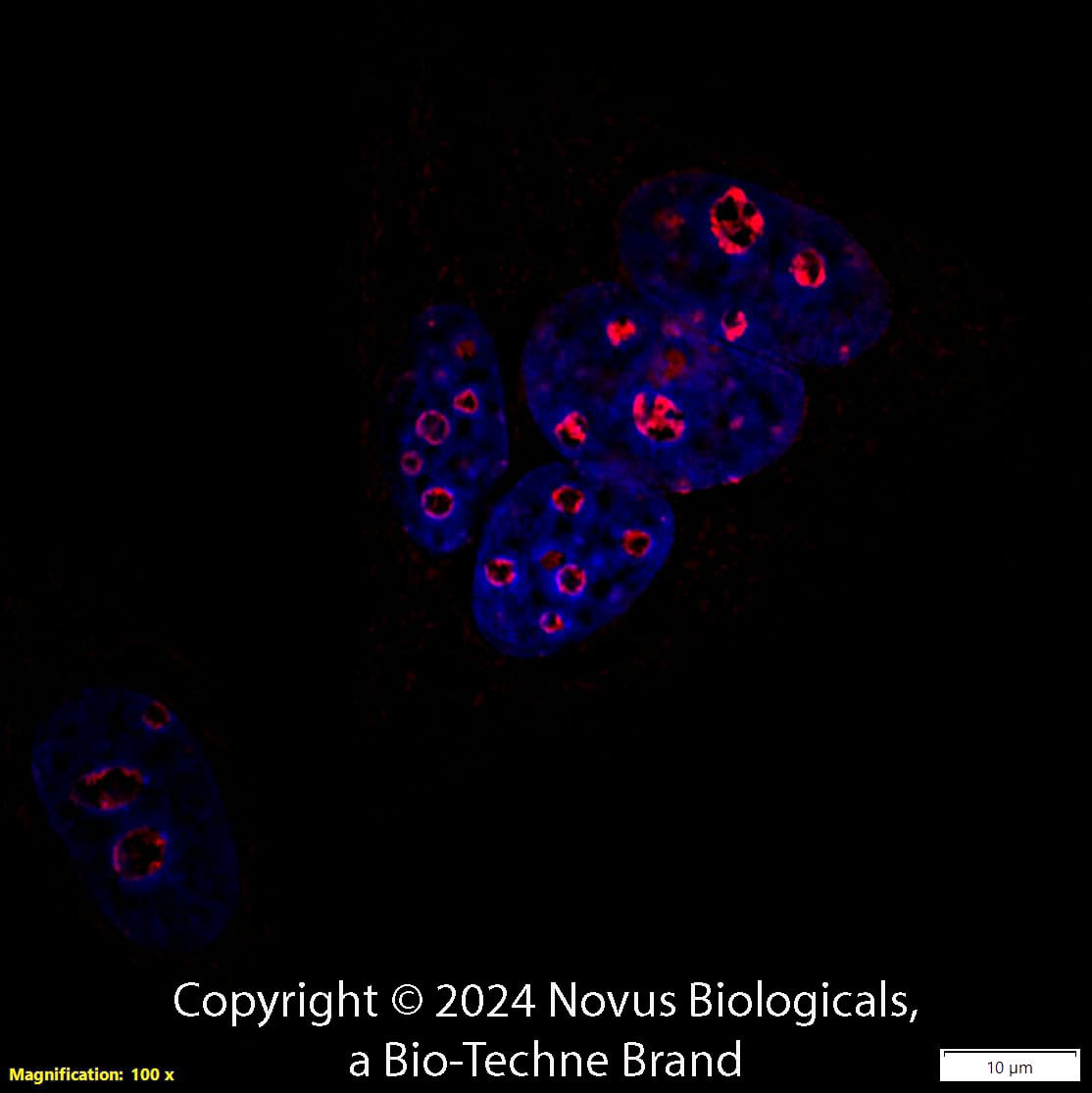
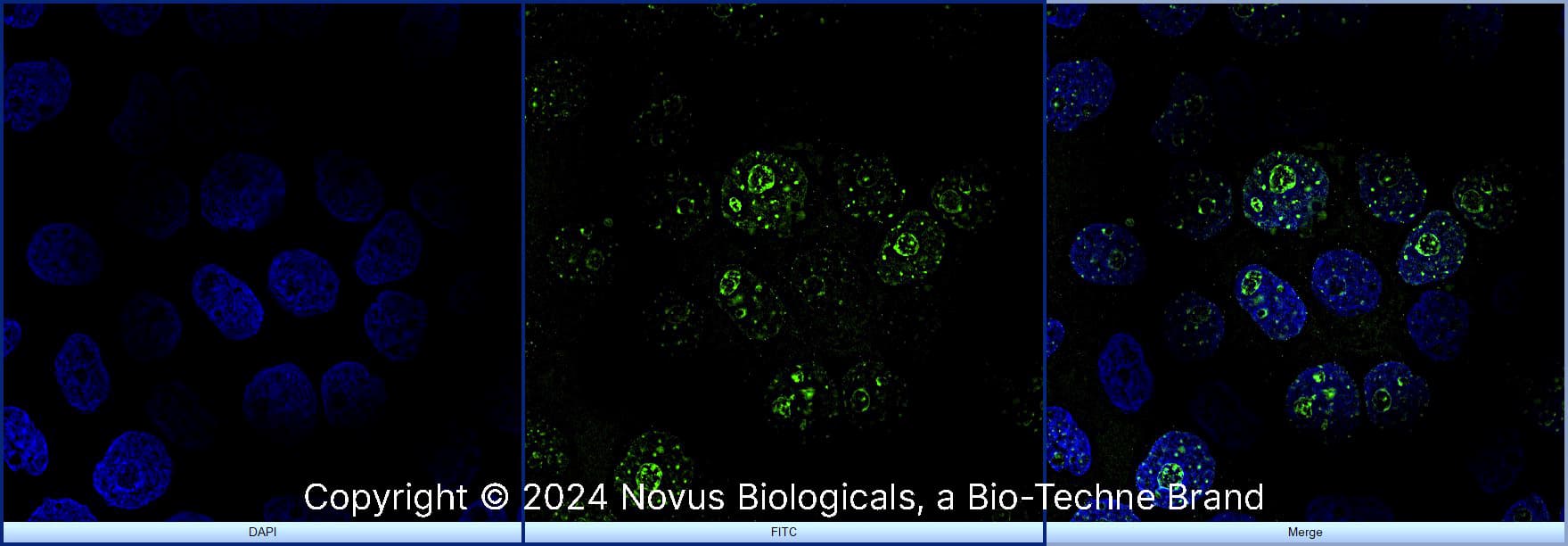
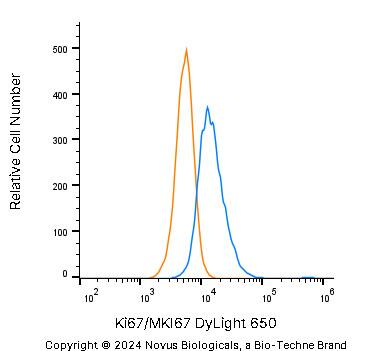
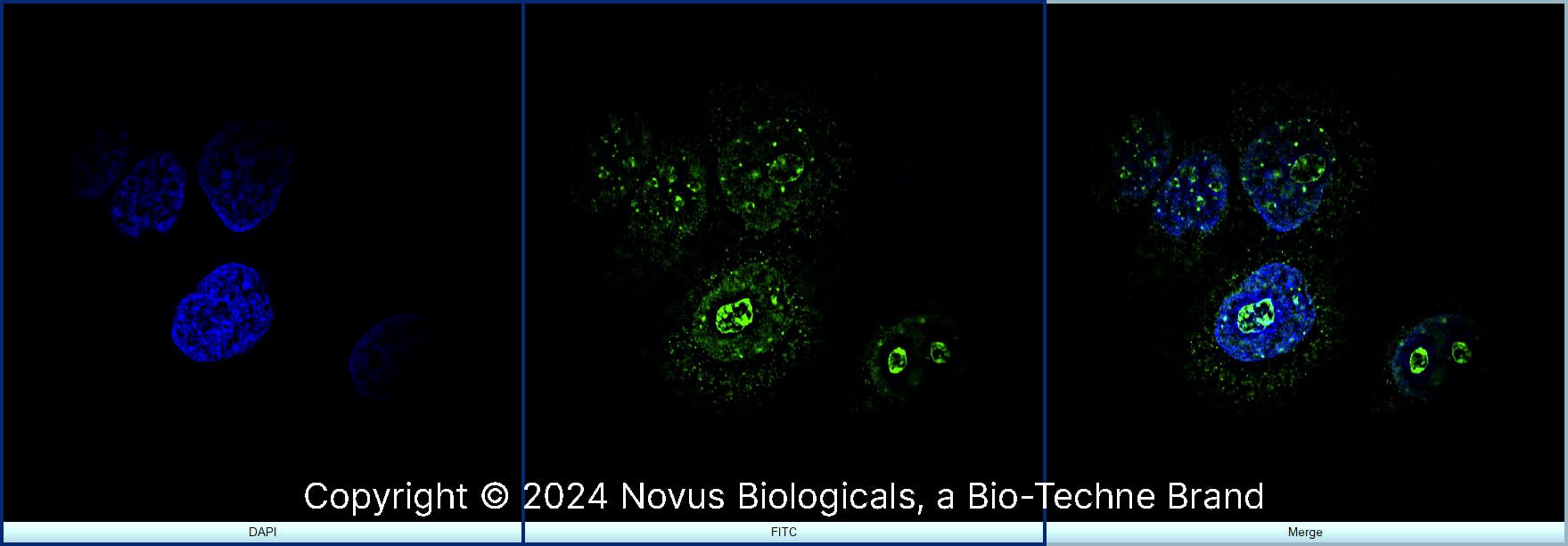
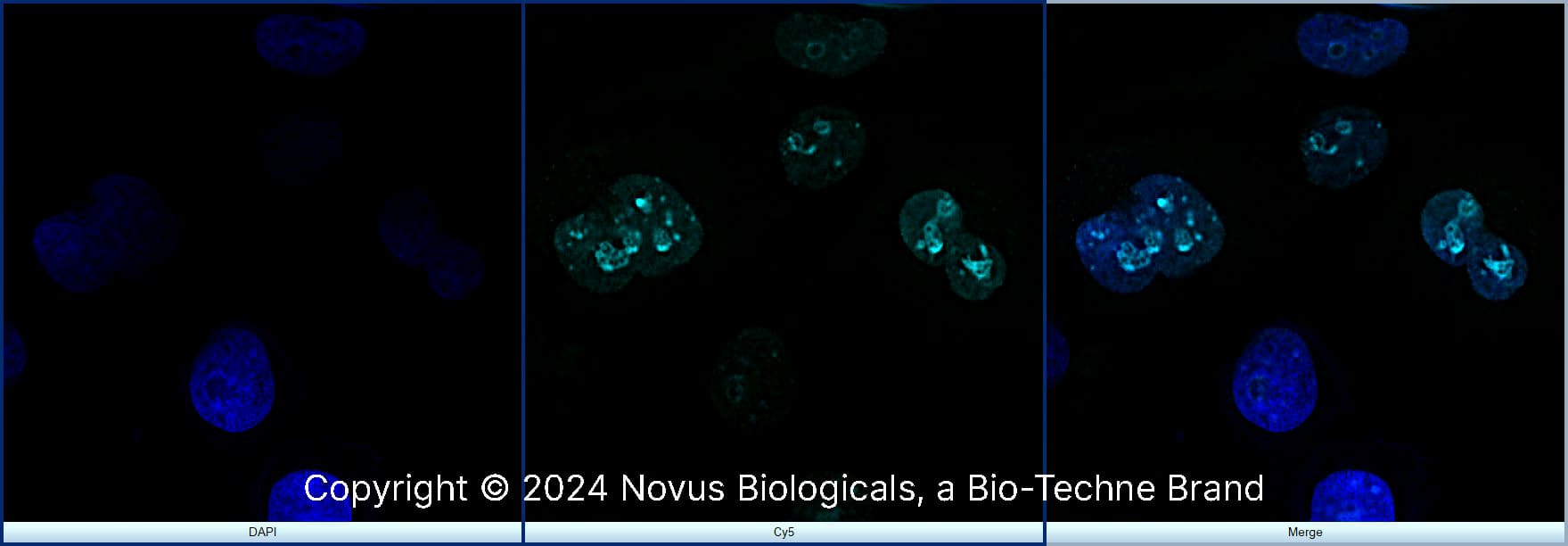
![Immunohistochemistry: Ki67/MKI67 Antibody - BSA Free [NB500-170] - Ki67/MKI67 Antibody - BSA Free](https://resources.bio-techne.com/images/products/nb500-170_rabbit-polyclonal-ki67-mki67-antibody-3102024153437.jpg)
![Immunohistochemistry: Ki67/MKI67 Antibody - BSA Free [NB500-170] - Ki67/MKI67 Antibody - BSA Free](https://resources.bio-techne.com/images/products/nb500-170_rabbit-polyclonal-ki67-mki67-antibody-310202416171470.jpg)
![Immunocytochemistry/ Immunofluorescence: Ki67/MKI67 Antibody - BSA Free [NB500-170] - Ki67/MKI67 Antibody - BSA Free](https://resources.bio-techne.com/images/products/nb500-170_rabbit-polyclonal-ki67-mki67-antibody-310202416175292.jpg)
![Immunocytochemistry/ Immunofluorescence: Ki67/MKI67 Antibody - BSA Free [NB500-170] - Ki67/MKI67 Antibody - BSA Free](https://resources.bio-techne.com/images/products/nb500-170_rabbit-polyclonal-ki67-mki67-antibody-310202416175289.jpg)